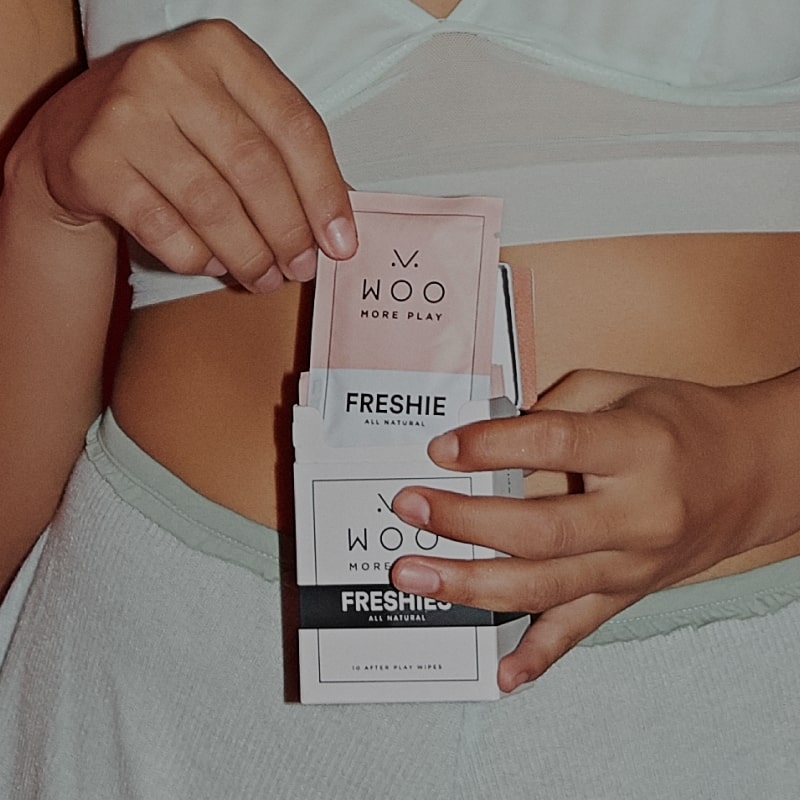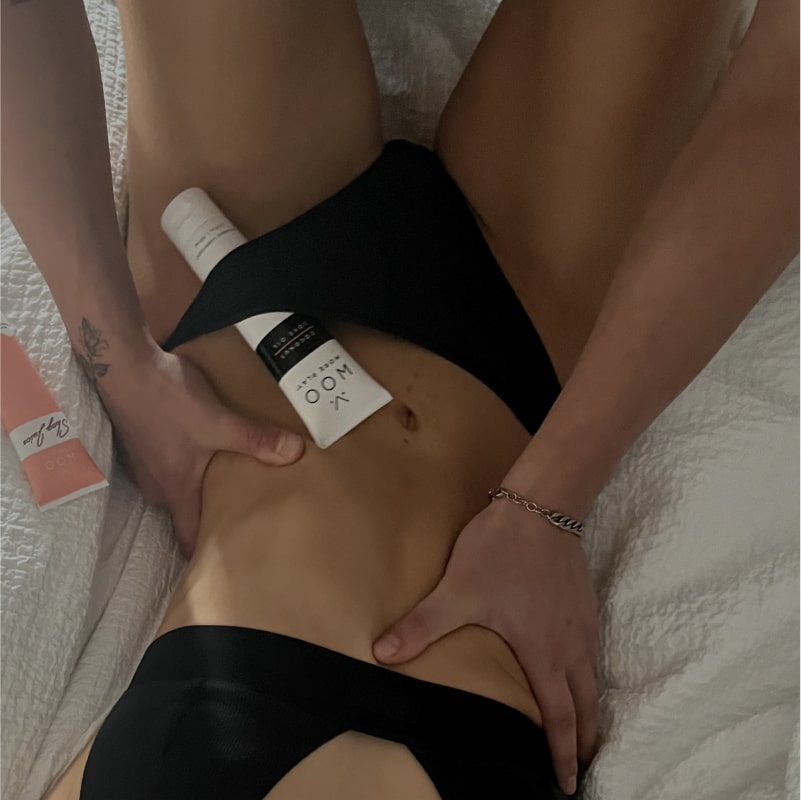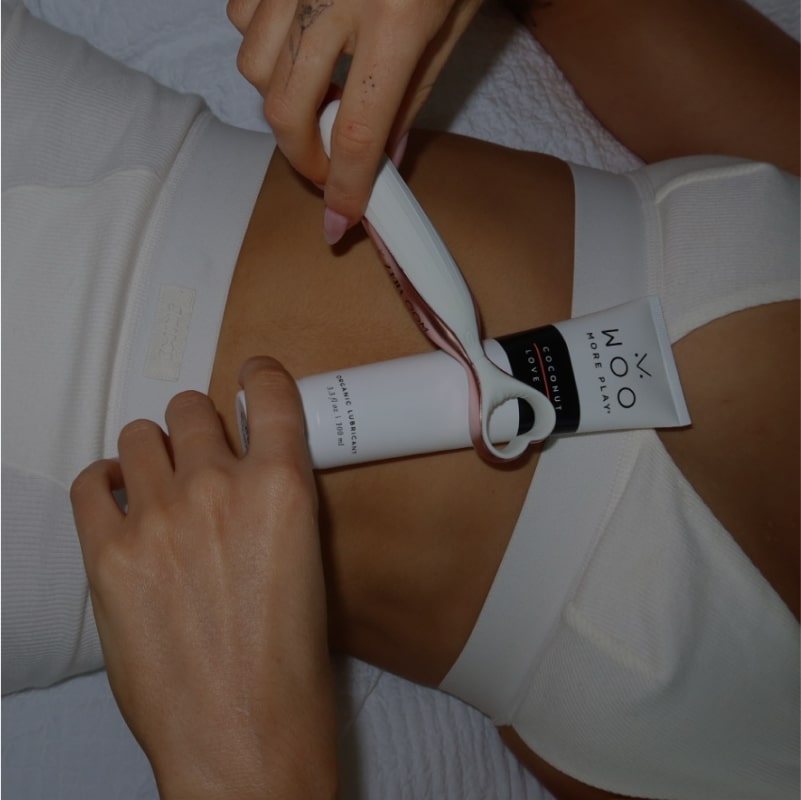Ah, coconut oil. That smooth, glossy jar sitting innocently in your kitchen might seem like the cure-all for everything: dry elbows, burnt toast, awkward eye contact. And yes, some swear by coconut oil as lube.
But when it comes to using coconut oil for sex, things get a little more... slippery.
We’re not here to yuck anyone’s yum. Virgin coconut oil has incredible moisturizing properties and a whole cult following. But before you smear it on your V, let’s talk science. Like, actual pH levels, vaginal microbiomes, and why your body might need more than whatever’s in the pantry.
Let’s unpack the real tea: is coconut oil safe for sex?

Key Takeaways
-
Coconut oil has moisturizing properties, but it can disrupt your vaginal pH balance and microbiome if not used correctly.
-
Cold-pressed or virgin coconut oil is safer than refined options, but still not ideal for everyone.
-
People with sensitive skin or prone to yeast infections should be cautious, as it may increase the risk of infections for those with sensitivities.
-
Always avoid coconut oil with latex condoms or dental dams (they break down latex).
-
A coconut oil-based lube, like WOO’s Love Oil, is specially formulated for safer use.
First, Let’s Talk About Vaginal pH
The vagina is not just a passive part of your anatomy. It’s a finely tuned, self-cleaning machine with a natural pH between 3.8 and 4.5. That slightly acidic environment keeps things humming by encouraging the growth of good bacteria (mostly Lactobacillus) and fending off infections.
Disrupt that balance, and you could be looking at irritation, inflammation, or the dreaded yeast infection.
That’s why what you put in and around your vagina matters, from scented soaps to lubricants to the mystery oil in your bathroom cabinet.
So... What Does Coconut Oil Actually Do?
Raw, virgin coconut oil does come with a few legit perks:
-
Hydrating and smooth: It feels good. We’ll give it that.
-
Antibacterial properties: It may help fight certain microbes.
-
Affordable and accessible: You can grab it at the grocery store.
But here’s where things get complicated.
Coconut oil is an oil-based lubricant. That means it doesn’t mix with water (duh), and can sit on your skin for hours. That prolonged residue may trap harmful bacteria, which can throw off your pH, and may make you more susceptible to infections. That’s why we 110% recommend giving your V a rinse after using it with a pH-balanced intimate wash, or at least a quick wipe with a pH-balanced intimate wipe.
For people with sensitive skin or those prone to yeast infections, this could mean a whole week of regret. And let’s not forget the latex issue: oil breaks latex. So, using coconut oil with latex condoms or dental dams? Not a safe combo.

The Coconut Oil Spectrum
Not all coconut oil is created equal. Here's a quick breakdown:
-
Virgin coconut oil (aka cold-pressed coconut oil): Minimally processed and retains some antibacterial properties. If you use one, this would be it.
-
Refined coconut oil: Processed with chemicals or heat. May be stripped of benefits and more likely to irritate.
So, if you're still set on using coconut oil as lube, virgin or cold-pressed is the only kind to consider, but know it’s still a risk if you’re prone to pH disruption.
Why Formulated Coconut Oil Lube Is The Better Choice
Let’s put it this way: using raw coconut oil on your genitals is kind of like brushing your teeth with baking soda. Technically, it works. But would you do it every day? Probably not.
A personal lubricant that uses coconut oil as a base (like WOO’s Love Oil) is pH-friendly, gynecologist-reviewed, and made for the job. It keeps the moisturizing properties without the microbiome risk.
And if you’re prone to imbalance? For women with frequent infections, try something gentle and water-based like Shag Juice, which mimics your body’s natural moisture and is especially great for those with sensitive skin.
FAQ: Is Coconut Oil Safe For Sex?
Can coconut oil increase the risk of vaginal infections?
Yes. Because it's oil-based and sits on the skin for long periods, coconut oil can trap harmful bacteria and may upset your vaginal pH, which can increase the risk of infections. To prevent this, always practice good hygiene and clean up after intimate with a pH-balanced intimate wash or wipe.
Is cold-pressed coconut oil safer than refined for sex?
Yes, virgin or cold-pressed coconut oil is less processed and generally safer on sensitive skin.
Is coconut oil safe to use with condoms?
No. Like all oils, coconut oil breaks down latex and can compromise the effectiveness of latex condoms or dental dams. If you use protection, stick to water-based or silicone-based lubricants.
What are the benefits of using coconut oil as a lubricant?
It feels silky, lasts longer than water-based lube, and can moisturize the skin. But those benefits come with risk if you have sensitive skin or a vagina that needs balanced support.
Is coconut oil a safe and effective alternative to lube?
It depends. While some people use it without issue, it isn’t formulated for internal use. For a safer, more effective experience, use a personal lubricant like Love Oil that contains coconut oil but is pH-friendly and tested for sexual health.
Final Thoughts On Coconut Oil Safety
Using coconut oil as lube might seem like a harmless, all-natural solution. And for some people, it might be fine. But for others, especially those dealing with vaginal dryness, prone to yeast infections, or using protection, it can cause more harm than good.
The smarter move? Choose a coconut oil-based lube that understands the science of your body. One that balances pleasure and health. WOO’s Love Oil knows the difference. So does your V.








